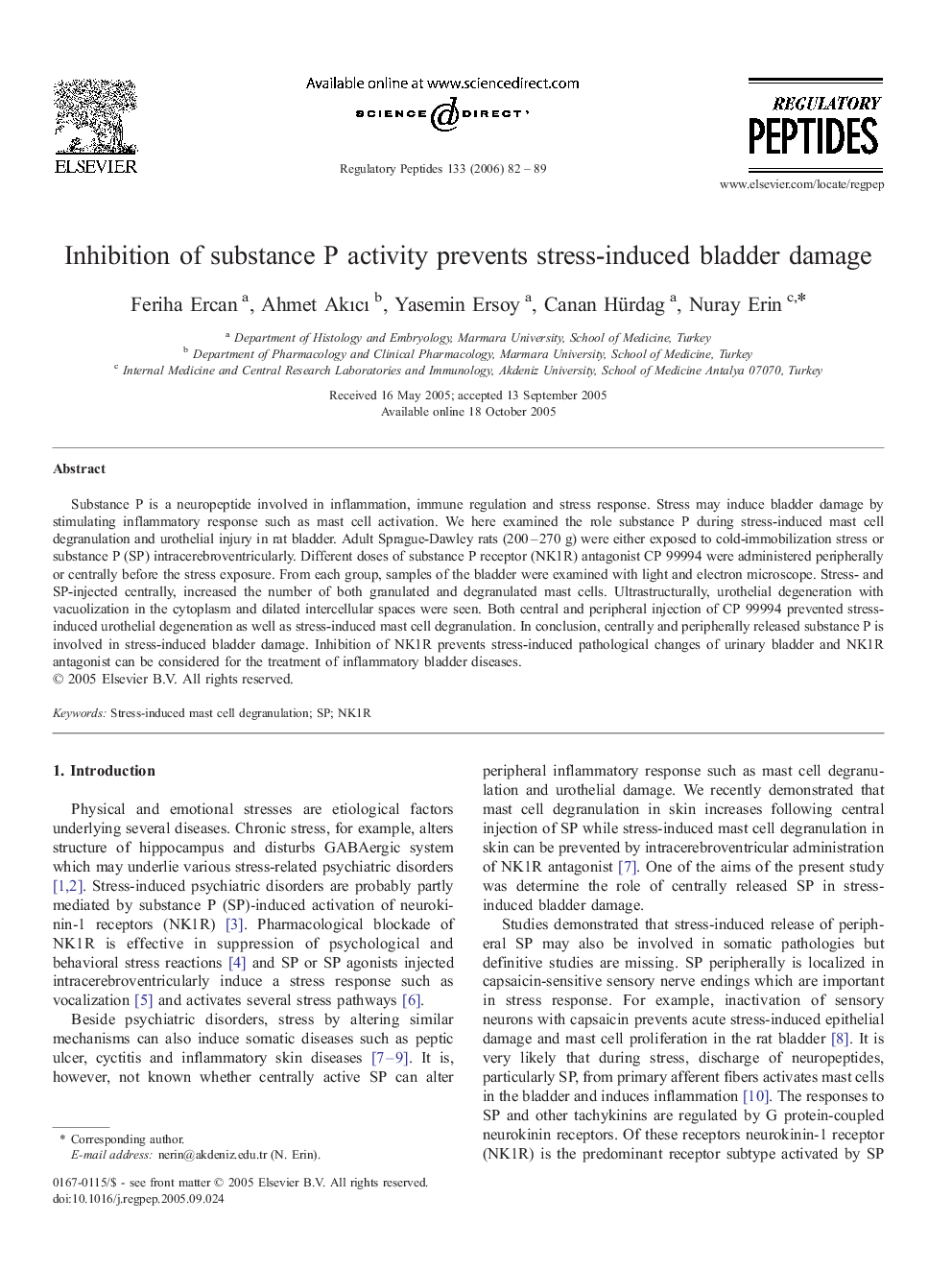| Article ID | Journal | Published Year | Pages | File Type |
|---|---|---|---|---|
| 2023420 | Regulatory Peptides | 2006 | 8 Pages |
Abstract
Substance P is a neuropeptide involved in inflammation, immune regulation and stress response. Stress may induce bladder damage by stimulating inflammatory response such as mast cell activation. We here examined the role substance P during stress-induced mast cell degranulation and urothelial injury in rat bladder. Adult Sprague-Dawley rats (200-270 g) were either exposed to cold-immobilization stress or substance P (SP) intracerebroventricularly. Different doses of substance P receptor (NK1R) antagonist CP 99994 were administered peripherally or centrally before the stress exposure. From each group, samples of the bladder were examined with light and electron microscope. Stress- and SP-injected centrally, increased the number of both granulated and degranulated mast cells. Ultrastructurally, urothelial degeneration with vacuolization in the cytoplasm and dilated intercellular spaces were seen. Both central and peripheral injection of CP 99994 prevented stress-induced urothelial degeneration as well as stress-induced mast cell degranulation. In conclusion, centrally and peripherally released substance P is involved in stress-induced bladder damage. Inhibition of NK1R prevents stress-induced pathological changes of urinary bladder and NK1R antagonist can be considered for the treatment of inflammatory bladder diseases.
Keywords
Related Topics
Life Sciences
Biochemistry, Genetics and Molecular Biology
Biochemistry
Authors
Feriha Ercan, Ahmet Akıcı, Yasemin Ersoy, Canan Hürdag, Nuray Erin,
